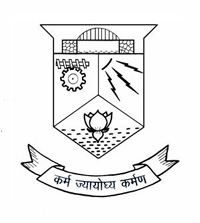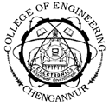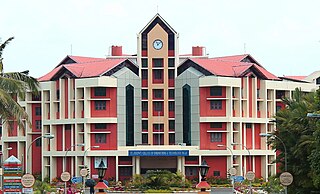
Harold Abelson is a Professor of Computer Science and Engineering in the Department of Electrical Engineering and Computer Science at the Massachusetts Institute of Technology (MIT), a founding director of both Creative Commons and the Free Software Foundation, creator of the MIT App Inventor platform, and co-author of the widely-used textbook Structure and Interpretation of Computer Programs, sometimes also referred to as "the wizard book."

Bangladesh University of Engineering and Technology, commonly known by the acronym BUET, is a public technological research university in Dhaka, Bangladesh. Founded in 1876 as the Dacca Survey School and gained university status in 1962, it is the oldest institution for the study of engineering, architecture, and urban planning in Bangladesh.
The World Wide Web has become a major delivery platform for a variety of complex and sophisticated enterprise applications in several domains. In addition to their inherent multifaceted functionality, these Web applications exhibit complex behaviour and place some unique demands on their usability, performance, security, and ability to grow and evolve. However, a vast majority of these applications continue to be developed in an ad hoc way, contributing to problems of usability, maintainability, quality and reliability. While Web development can benefit from established practices from other related disciplines, it has certain distinguishing characteristics that demand special considerations. In recent years, there have been developments towards addressing these considerations.
Iterative design is a design methodology based on a cyclic process of prototyping, testing, analyzing, and refining a product or process. Based on the results of testing the most recent iteration of a design, changes and refinements are made. This process is intended to ultimately improve the quality and functionality of a design. In iterative design, interaction with the designed system is used as a form of research for informing and evolving a project, as successive versions, or iterations of a design are implemented.

The College of Engineering, Trivandrum, commonly shortened to CET, is an engineering college in the Indian state of Kerala, situated in Thiruvananthapuram. Founded in 1939 by the Travancore monarch Chithira Thirunal, it is the state's oldest technical institution. It currently offers undergraduate, graduate and research programs in eight branches of engineering and has been affiliated to the APJ Abdul Kalam Technological University since 2015, prior to which it was part of the University of Kerala.

A hackathon is an event where people engage in rapid and collaborative engineering over a relatively short period of time such as 24 or 48 hours. They are often run using agile software development practices, such as sprint-like design wherein computer programmers and others involved in software development, including graphic designers, interface designers, product managers, project managers, domain experts, and others collaborate intensively on engineering projects, such as software engineering.

The College of Engineering Chengannur commonly known as CEC, is an engineering institute in the state of Kerala, India, that was established by the Government of Kerala under the aegis of the Institute of Human Resources Development (IHRD) in 1993. The college is located in Chengannur, Alappuzha. The college is affiliated to the APJ Abdul Kalam Technological University and the courses are recognised by AICTE and accredited by NBA, the National Board of Accreditation, India.
Nitte Meenakshi Institute of Technology (NMIT) is an autonomous engineering college in Bangalore, Karnataka, India affiliated to the Visvesvaraya Technological University, Belagavi.
In software engineering, a software development process or software development life cycle (SDLC) is a process of planning and managing software development. It typically involves dividing software development work into smaller, parallel, or sequential steps or sub-processes to improve design and/or product management. The methodology may include the pre-definition of specific deliverables and artifacts that are created and completed by a project team to develop or maintain an application.

St. Joseph's College of Engineering and Technology, Palai is an Indian private college managed by the Syro-Malabar Catholic Diocese of Pala, located in Pala, Kerala, India. It is an AICTE-approved college offering professional degree programs in engineering and management courses. SJCET Palai is a constituent college of Mahatma Gandhi University, Kottayam, and A. P. J Abdul Kalam Technological University. Four of its engineering undergraduate degree programs—Electronics and Instrumentation Engineering, Computer Science and Engineering, Electronics and Communications Engineering, and Mechanical Engineering—were accredited by the National Board of Accreditation in 2012 for a period of 3 years. The NBA has re-accredited two undergraduate degree programs in Electronics and Communications Engineering and Mechanical Engineering in 2019 and is valid up to June 30, 2022. This college is an ISO 9001:2008-certified institution that regularly conducts internal and external audits.

The Government College of Engineering Karunagappally (CEK) is a public institute of engineering and technology in Karunagappally, in the north-west of Kollam district, Kerala, India. Established in 1999 by the Government of Kerala, it is the second engineering college in Kollam district the fourth engineering college under the aegis of the state government's Institute of Human Resources Development in Electronics. The institute is affiliated to the A P J Abdul Kalam Technological University, Recognized by AICTE and Accredited by National Board of Accreditation(NBA). It is the second engineering College in the Kerala Section to win the prestigious IEEE Region 10(Asia - Pacific) Exemplary Student Branch Award, Only student branch in Asia Pacific Region to win the IEEE MGA Regional Exemplary Student Branch Award twice in a row.
The Institute for Development & Research in Banking Technology (IDRBT) is an engineering training institution exclusively focused on banking technology. Established by the Reserve Bank of India (RBI) in 1996, the institution works at the intersection of banking and technology. It is located in Hyderabad, India.
The following outline is provided as an overview of and topical guide to software development:

Android Developer Days (ADD) is an open conference held at various locations worldwide each year. The Android Developer Days conference is a growing organization that allows developers of various software and applications to showcase, observe, and participate in Android Developing events, such as informational lectures, workshops, entertainment activities, panel discussions, and networking opportunities make up a majority of the Android Developer Days. As an international leader in mobile operating systems, ADD has become increasingly popular as the center for mobile device conventions. Unofficial participants may elect to observe different booths and displays. However, in order to partake in the festivities, one must apply to join the organization. There is an assortment of ways that one is able to join the conference including exhibiting your own presentation, showcasing posters featuring developing applications, or instructing hands-on, interactive coding tutorials. In 2014, the Android Developer Days conventions had been held in Ankara, Turkey, from May 16 to May 17.
IEEEXtreme is an annual hackathon and competitive programming challenge in which teams of IEEE Student members, often supported by an IEEE Student Branch and proctored by an IEEE member, compete in a 24-hour time span against each other to solve a set of programming problems. The competition is underwritten and coordinated by IEEE's Membership and Geographic Activities department, and is often supported by partnering sponsors, like IEEE Computer Society.

The University of Engineering & Management (UEM), Kolkata is a private university located in New Town, Kolkata. It provides engineering, technological & management education. It was established in 2015 by IEM Trust, Act no. 25 and it is the third engineering institution founded by the University of Engineering and Management(UEM) and the Institute of Engineering and management(IEM) Group. This university is administrated by the Institute of Engineering and Management (IEM) education group trust.
Mengchu Zhou is a Chinese-American Distinguished Professor of electrical and computer engineering in the Helen and John C. Hartmann Dept. of Electrical and Computer Engineering at New Jersey Institute of Technology (NJIT) and at Macau University of Science and Technology. He is the Chairman of IKAS Industries of Shenzhen in China and a Board Member of OneSmart Education Group headquartered in China.

Chan-Jin Chung, commonly known as CJ Chung, is a full professor of computer science at Lawrence Technological University (LTU) in Michigan, USA. He founded an international autonomous robotics competition called Robofest in the 1999–2000 academic year as well as numerous educational programs for youth by integrating STEM, arts, autonomous robotics, and computer science. He also served as the founding USA National Organizer of World Robot Olympiad (WRO) in 2014 and 2015. He also started the WISER conference in 2014. He is working on developing a computer science curriculum for connected and autonomous vehicles (CAV) with a support from National Science Foundation . His research areas include evolutionary computation, cultural algorithms, intelligent systems & autonomous mobile robotics, software engineering,

Catrobat is a block-based visual programming language and Open Source Software non-profit project. First released in 2010 by Wolfgang Slany from the Technical University Graz in Austria. The multidisciplinary team develops the programming language and free apps for teenagers to create their own games, animations, music videos, or all other kinds of apps directly on a smartphone based on the catrobat framework.












